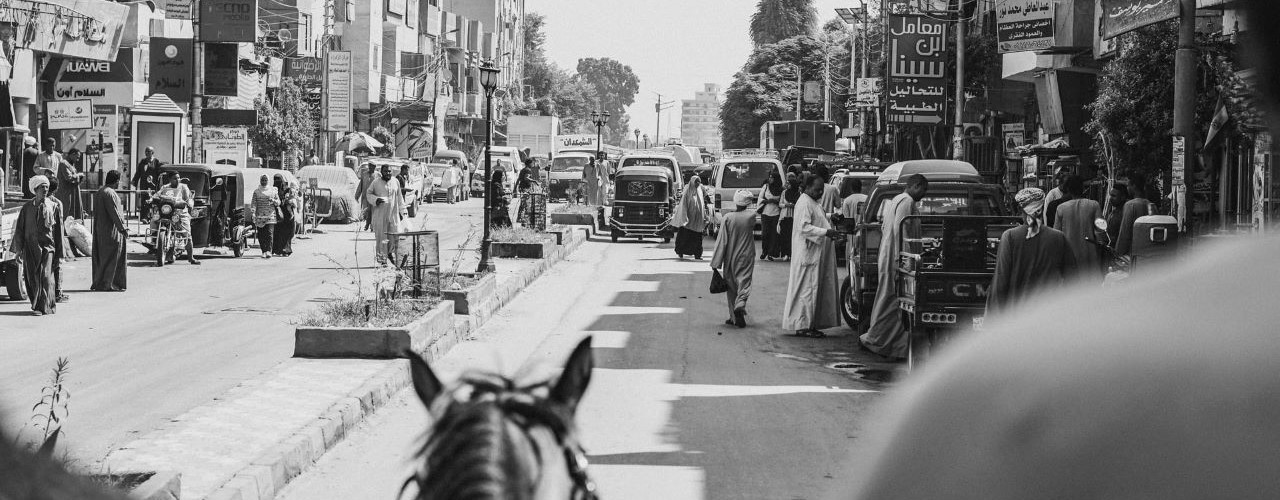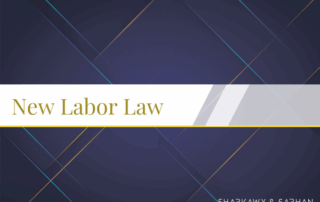30th of August, 2015
Law 94/2015 On Combating Terrorism
Keywords: Infrastructure & Projects, Commercial
The President issued Law 94/2015 on combating terrorism. The law, significantly, increases the powers of the authorities to face the crime and widen the scope of the crime itself. Below are the main highlights of the law.
The law widens the scope of the crime:
- The law equates between solicitation to crime and full crime. Solicitation needs not be directed to a specific person. The law widens the scope of solicitation to include any public statement that includes solicitation of the crime even if it did not cause a result. Solicitation can be radical views expressed on a website or on a private social media page, or in public media.
- The law criminalizes the funding of terrorism, either directly or indirectly.
- The law criminalizes publishing or disseminating inaccurate news or information contrary to official statements issued by the Ministry of Defence relating to terrorist acts or security operations combating them. The penalty is a fine ranging from EG100’000 to EGP500’000. If a juristic person commits the crime, the executive manager will be liable. The company, itself, will be jointly liable for the penalty and any compensation result from the crime.
- The terrorism crime does not lapse by prescription.
The law widens the police powers while combating terrorism.
- The law gives a police officer the right to arrest and detain a suspect for 24 hours, if the officer sees a danger of a terrorism crime or because of necessity to combat terrorism, without obtaining judicial permit.
- The law increases the periods in which the public prosecutor may extend the detention of the suspect without resorting to a judge.
A copy of the decision (Arabic) can be accessed here.
The law widens the scope of the crime:
- The law equates between solicitation to crime and full crime. Solicitation needs not be directed to a specific person. The law widens the scope of solicitation to include any public statement that includes solicitation of the crime even if it did not cause a result. Solicitation can be radical views expressed on a website or on a private social media page, or in public media.
- The law criminalizes the funding of terrorism, either directly or indirectly.
- The law criminalizes publishing or disseminating inaccurate news or information contrary to official statements issued by the Ministry of Defence relating to terrorist acts or security operations combating them. The penalty is a fine ranging from EG100’000 to EGP500’000. If a juristic person commits the crime, the executive manager will be liable. The company, itself, will be jointly liable for the penalty and any compensation result from the crime.
- The terrorism crime does not lapse by prescription.
The law widens the police powers while combating terrorism.
- The law gives a police officer the right to arrest and detain a suspect for 24 hours, if the officer sees a danger of a terrorism crime or because of necessity to combat terrorism, without obtaining judicial permit.
- The law increases the periods in which the public prosecutor may extend the detention of the suspect without resorting to a judge.
A copy of the decision (Arabic) can be accessed here.

Law 94/2015 On Combating Terrorism
30 August, 2015
Keywords: Infrastructure & Projects, Commercial
The President issued Law 94/2015 on combating terrorism. The law, significantly, increases the powers of the authorities to face the crime and widen the scope of the crime itself. Below are the main highlights of the law.
The law widens the scope of the crime:
- The law equates between solicitation to crime and full crime. Solicitation needs not be directed to a specific person. The law widens the scope of solicitation to include any public statement that includes solicitation of the crime even if it did not cause a result. Solicitation can be radical views expressed on a website or on a private social media page, or in public media.
- The law criminalizes the funding of terrorism, either directly or indirectly.
- The law criminalizes publishing or disseminating inaccurate news or information contrary to official statements issued by the Ministry of Defence relating to terrorist acts or security operations combating them. The penalty is a fine ranging from EG100’000 to EGP500’000. If a juristic person commits the crime, the executive manager will be liable. The company, itself, will be jointly liable for the penalty and any compensation result from the crime.
- The terrorism crime does not lapse by prescription.
The law widens the police powers while combating terrorism.
- The law gives a police officer the right to arrest and detain a suspect for 24 hours, if the officer sees a danger of a terrorism crime or because of necessity to combat terrorism, without obtaining judicial permit.
- The law increases the periods in which the public prosecutor may extend the detention of the suspect without resorting to a judge.
A copy of the decision (Arabic) can be accessed here.
The law widens the scope of the crime:
- The law equates between solicitation to crime and full crime. Solicitation needs not be directed to a specific person. The law widens the scope of solicitation to include any public statement that includes solicitation of the crime even if it did not cause a result. Solicitation can be radical views expressed on a website or on a private social media page, or in public media.
- The law criminalizes the funding of terrorism, either directly or indirectly.
- The law criminalizes publishing or disseminating inaccurate news or information contrary to official statements issued by the Ministry of Defence relating to terrorist acts or security operations combating them. The penalty is a fine ranging from EG100’000 to EGP500’000. If a juristic person commits the crime, the executive manager will be liable. The company, itself, will be jointly liable for the penalty and any compensation result from the crime.
- The terrorism crime does not lapse by prescription.
The law widens the police powers while combating terrorism.
- The law gives a police officer the right to arrest and detain a suspect for 24 hours, if the officer sees a danger of a terrorism crime or because of necessity to combat terrorism, without obtaining judicial permit.
- The law increases the periods in which the public prosecutor may extend the detention of the suspect without resorting to a judge.
A copy of the decision (Arabic) can be accessed here.
Insights
Disclaimer
The information included in this publication/client alert is not legal advice or any other advice. Publications and client alerts on this site are current as of their date of publication and do not necessarily reflect the present law or regulations. Please feel free to contact us should you need any legal advice related to the publication/client alert. Sharkawy & Sarhan (the “Firm”) will not be held liable for any compensatory, special, direct, incidental, indirect, or consequential damages, exemplary damages or any damages whatsoever arising out of or in connection with the use of the data, information or material included in this publication/client alert. This publication/client alert may contain links to third-party websites that are not controlled by the Firm. These third-party links are made available to you as a convenience and you agree to use these links at your own risk. Please be aware that the Firm is not responsible for the content or services offered by and of third-party websites, links as included in the Newsletter nor are we responsible for the privacy policy or practices of third-party websites links included therein.
Authorization of Use
The data, information, and material included in this publication/client alert are solely owned by the Firm. All rights related are reserved under the laws of the Arab Republic of Egypt. No part of this publication/client alert can be redistributed, copied, or reproduced without the prior written consent of the Firm.


